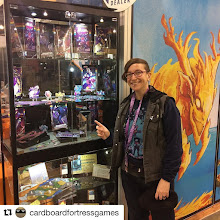I wasn’t interested in seeing Alpha Dog until I saw Emile Hirsch’s performance as the title character in Speed Racer, and even after seeing it, I still feel the latter is possibly the best delivery he’s ever given. But I will say one thing: I had no idea Justin Timberlake could act. Sure, I’ve seen his silly performances on Saturday Night Live, and I love Black Snake Moan, but let’s be serious – who was paying attention to him in that movie, really? Christina Ricci utterly consumed all focus. But Timerlake was given the chance to truly shine in this movie, bringing out a side of him I had never seen.
For anyone unfamiliar with the plot, Alpha Dog is based on a true story – that of “Jesse James Hollywood,” who was the youngest man to appear on the FBI’s “Most Wanted” list. This tragic tale centers on Hirsch’s character, Johnny Truelove, and his relationship with one of his underlings, Jake Mazursky. Mazursky owes him money, and the two start a feud that leads to Truelove kidnapping Jake’s younger brother, Zack. Thinking this will blow over quickly, Truelove puts Frankie in charge of watching Zack. Frankie – played by Timberlake – and Zack both begin to take the situation lightly. Frankie starts to like the kid, and Zack, who had just gotten into a fight with his parents, loves the freedom (ironically) and the party-all-the-time lifestyle. He’s somewhat of a celebrity to all the kids, and the girls can’t keep their hands off of him. But when the reality of what has happened catches up with everyone – a seriousness evident as an undercurrent throughout the film with the reactions of the Mazursky parents, as well as Truelove’s father’s reaction to what’s going on – Truelove makes a drastic decision that shatters the rock-star lifestyle they’ve all been leading.
Touching, naïve, and tragic, Alpha Dog has many themes – the mentality of the “immortal and untouchable youth,” the fear of taking responsibility for one’s actions, and the herd mentality all combine for extraordinary characters and an unforgettable story. I wouldn’t recommend this to the overly-sensitive or the weak of stomach or heart, though. It’s a tragedy that will remain with you.
